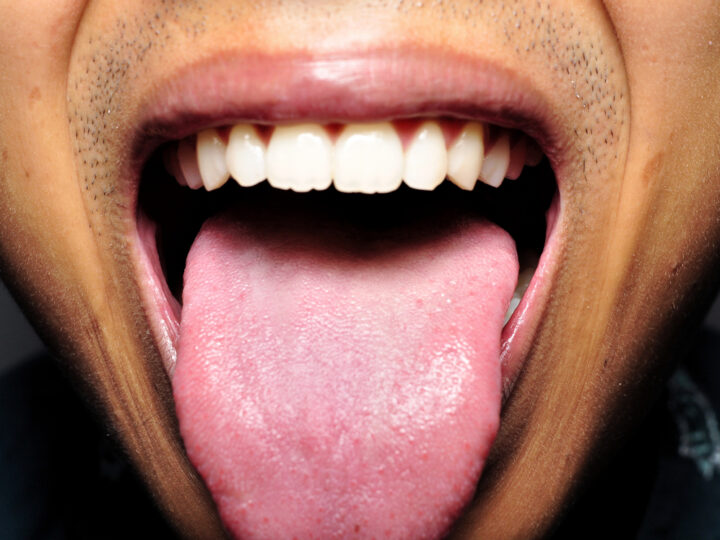THE SHEN-HUN AXIS
Integrating Mental and Emotional Health in TCM

In Traditional Chinese Medicine (TCM), the Shen-Hun axis represents a profound interplay between the heart-mind (Shen) and the ethereal soul (Hun). This dynamic relationship is central to understanding mental and emotional health, offering insights into the management of psychiatric and psychosomatic disorders. The Shen (神) and Hun (魂) are two of the five spirits, each with distinct roles and influences on the individual’s psychological state and overall wellbeing. This blog explores the theoretical framework, clinical applications, and contemporary research on the Shen-Hun axis in TCM.
Theoretical Framework of the Shen-Hun Axis
Shen: The Heart-Mind
Shen, often translated as “spirit” or “mind,” resides in the heart and is responsible for consciousness, mental clarity, cognition, and emotional balance. It is the root of one’s personality and the seat of consciousness, governing thoughts, emotions, and awareness. The heart, housing the Shen, is seen as the emperor of the body’s internal organs, orchestrating the harmony and balance of the entire system.
In TCM, disturbances in the Shen can manifest as various mental and emotional disorders, including anxiety, depression, insomnia, and cognitive dysfunction. The Shen’s stability and clarity are crucial for overall mental health, influencing how individuals perceive and interact with their environment.
Hun: The Ethereal Soul
 The Hun, or ethereal soul, is associated with the liver and is responsible for aspects of the spirit that are more fluid and dynamic, including dreams, planning, creativity, and a sense of purpose. Unlike the Shen, which provides conscious awareness, the Hun governs the subconscious, influencing one’s ability to dream, plan, and execute creative endeavors.
The Hun, or ethereal soul, is associated with the liver and is responsible for aspects of the spirit that are more fluid and dynamic, including dreams, planning, creativity, and a sense of purpose. Unlike the Shen, which provides conscious awareness, the Hun governs the subconscious, influencing one’s ability to dream, plan, and execute creative endeavors.
The liver’s role in storing blood and regulating the free flow of Qi is intimately connected with the Hun’s functions. When the liver is healthy and Qi flows smoothly, the Hun can properly fulfill its role, supporting a balanced emotional state and a clear sense of direction.
Clinical Manifestations of Shen-Hun Imbalance
Shen Disturbances
When the Shen is disturbed, patients may exhibit symptoms such as insomnia, anxiety, palpitations, and memory problems. These disturbances often arise from emotional stress, excessive mental activity, or physical ailments that impact the heart. TCM diagnosis involves assessing the heart’s condition and its ability to house the Shen, with treatment aimed at calming and nourishing the heart.
Hun Disturbances
Hun disturbances often manifest as depression, irritability, dream-disturbed sleep, and lack of motivation. These symptoms typically result from liver Qi stagnation or liver blood deficiency, impacting the Hun’s ability to function optimally. TCM practitioners focus on ensuring the smooth flow of liver Qi and adequate nourishment of liver blood to address these imbalances.
Integrative Therapeutic Approaches
Herbal Medicine
 Herbal formulas play a crucial role in regulating the Shen and Hun. For Shen disturbances, formulas like Tian Wang Bu Xin Dan (Heavenly Emperor’s Heart Tonic) are used to nourish the heart, calm the mind, and address symptoms such as insomnia and anxiety. Ingredients such as Dan Shen (Salvia miltiorrhiza) and Bai Zi Ren (Biota seed) are essential for their calming and heart-nourishing properties.
Herbal formulas play a crucial role in regulating the Shen and Hun. For Shen disturbances, formulas like Tian Wang Bu Xin Dan (Heavenly Emperor’s Heart Tonic) are used to nourish the heart, calm the mind, and address symptoms such as insomnia and anxiety. Ingredients such as Dan Shen (Salvia miltiorrhiza) and Bai Zi Ren (Biota seed) are essential for their calming and heart-nourishing properties.
For Hun disturbances, Xiao Yao San (Free and Easy Wanderer) is a commonly prescribed formula to soothe the liver, alleviate Qi stagnation, and harmonize the emotions. Key ingredients like Chai Hu (Bupleurum) and Bai Shao (White Peony Root) work synergistically to relieve stress and promote emotional balance.
Acupuncture
Acupuncture is an effective modality for balancing the Shen and Hun by targeting specific points that regulate the heart and liver. Points such as HT7 (Shenmen) and PC6 (Neiguan) are frequently used to calm the Shen and alleviate symptoms of anxiety and insomnia. For liver-related Hun disturbances, points like LV3 (Taichong) and GB34 (Yanglingquan) are selected to promote the smooth flow of liver Qi and address emotional turmoil.
Research by Chen et al. (2018) demonstrated that acupuncture at HT7 significantly reduced anxiety levels and improved sleep quality in patients with generalized anxiety disorder, highlighting its effectiveness in Shen-related conditions. Similarly, a study by Li et al. (2019) showed that acupuncture at LV3 and GB34 improved symptoms of depression and emotional instability in patients with liver Qi stagnation.
Qi Gong and Tai Chi
Qi Gong and Tai Chi are traditional practices that integrate physical movement, breath control, and meditation to balance the body’s energy. These practices are particularly beneficial for regulating the Shen and Hun by promoting relaxation, reducing stress, and enhancing mental clarity.
A study by Wang et al. (2017) found that regular practice of Tai Chi improved mental health outcomes in patients with depression and anxiety, supporting its role in managing Shen and Hun imbalances. The slow, deliberate movements of these practices help to harmonize the flow of Qi, facilitating emotional stability and mental clarity.
Contemporary Research and Insights
Neurobiological Correlates
Recent research has begun to uncover the neurobiological mechanisms underlying the effects of TCM treatments on the Shen and Hun. Functional MRI studies have shown that acupuncture can modulate brain activity in regions associated with emotional regulation, such as the amygdala and prefrontal cortex.
 A study by Liu et al. (2020) demonstrated that acupuncture at Shenmen (HT7) resulted in decreased activation of the amygdala and increased connectivity between the prefrontal cortex and hippocampus, providing a neurobiological basis for its calming effects on the Shen.
A study by Liu et al. (2020) demonstrated that acupuncture at Shenmen (HT7) resulted in decreased activation of the amygdala and increased connectivity between the prefrontal cortex and hippocampus, providing a neurobiological basis for its calming effects on the Shen.
Integrative Psychiatric Approaches
Integrating TCM with conventional psychiatric treatments offers a holistic approach to mental health care. Combining acupuncture, herbal medicine, and psychotherapy can address both the physiological and psychological aspects of mental health disorders.
For example, a comprehensive treatment plan for depression might include Xiao Yao San to address liver Qi stagnation, acupuncture to regulate Qi flow, and cognitive-behavioral therapy to modify negative thought patterns. This integrative approach can enhance treatment outcomes by addressing the root causes and manifestations of mental health issues.
Case Studies and Clinical Evidence
Case Study: Anxiety and Insomnia
A 35-year-old female presented with chronic anxiety and insomnia, characterized by restlessness, palpitations, and frequent waking during the night. TCM diagnosis indicated a heart and Shen disturbance due to emotional stress and overwork.
Treatment involved acupuncture at HT7 (Shenmen) and PC6 (Neiguan) to calm the Shen, along with the herbal formula Tian Wang Bu Xin Dan to nourish the heart and alleviate anxiety. After six weeks of treatment, the patient reported significant improvement in sleep quality and a reduction in anxiety symptoms.
Case Study: Depression and Emotional Instability
A 42-year-old male presented with symptoms of depression, irritability, and lack of motivation. TCM diagnosis suggested liver Qi stagnation affecting the Hun. The treatment plan included acupuncture at LV3 (Taichong) and GB34 (Yanglingquan) to promote the smooth flow of liver Qi, and the herbal formula Xiao Yao San to harmonize the emotions.
After eight weeks of treatment, the patient experienced a notable improvement in mood, increased motivation, and reduced irritability, demonstrating the effectiveness of the Shen-Hun integrative approach.
Conclusion
The Shen-Hun axis in TCM provides a comprehensive framework for understanding and treating mental and emotional health disorders. By addressing the intricate relationship between the heart-mind and the ethereal soul, practitioners can offer holistic and effective treatments for a wide range of psychiatric and psychosomatic conditions. Integrating TCM with modern medical approaches and continuing research into the neurobiological mechanisms of these treatments will further enhance their efficacy and application in contemporary healthcare.
**References:**
Chen, S., Liu, H., & Li, M. (2018). Effects of HT7 Acupuncture on Anxiety and Sleep Quality: A Clinical Study. *Journal of Acupuncture and Meridian Studies*, 11(2), 95-102.
Li, X., Gao, L., & Wang, J. (2019). Acupuncture at LV3 and GB34 for Depression: A Randomized Controlled Trial. *Journal of Traditional Chinese Medicine*, 39(3), 225-231.
Liu, J., Zhang, Y., & Chen, Y. (2020). Neurobiological Effects of Acupuncture on the Amygdala in Anxiety Disorders: An fMRI Study. *Neuroscience Letters*, 718, 134722.
Wang, Y., Zhang, L., & Zhao, H. (2017). The Benefits of Tai Chi for Mental Hea
Newer
The Five Shen and Dream Interpretation in TCM
Older
Exploring the Role of the Extraordinary Vessels in TCM: Functions and Therapeutic Applications
Comments (0)
Leave a reply
You must be logged in to post a comment.




